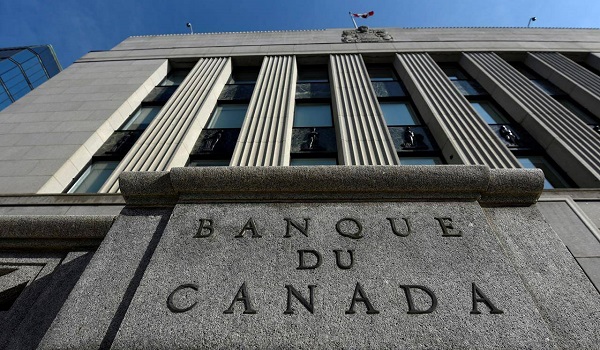Union calls for suspension of temporary foreign workers program, says foreign workers are abused
The International Union of Painters and Allied Trades says employer abuse of foreign workers is running “rampant” in the construction sector and Ottawa should pause the temporary foreign workers program entirely until an independent audit is conducted to investigate the scale of fraud and misuse within the program.
The construction union said in a statement Thursday it discovered financial abuse of migrant workers at a British Columbia painting company. At least one of the workers has since been approved for a government program that converts closed work permits to open work visas if applicants can prove they suffered severe abuse and exploitation by their employer.
Dan Jajic, business manager of DC38, an IUPAT local unit in Burnaby, B.C., told The Globe that his union knows of construction companies using the TFW program to “submit lower-cost bids and steal contracts away from companies who pay living wages to Canadians.” DC38 represents approximately 1,800 workers in B.C.
Earlier this year, the union began looking into allegations of exploitation of Indonesian migrant workers hired as painters for Concord Painting and Wallcovering Ltd., a painting company in Burnaby that touts itself as one of the “top painting contractors” in B.C.’s Lower Mainland.
The union said a number of TFWs – including the one who was eventually granted an open work visa – were being forced to perform unpaid work in the evenings and on weekends, in addition to being charged above-market rents for rooms in a house owned by their employer.
Concord did not specifically address questions about such work arrangements. In an e-mail, the company’s general manager Motor Ma said that “all overtime hours including time and a half were paid as per the British Columbia Employment Standards Act.”
This week, Ottawa announced a significant clamping down of the low-wage stream of the TFW program, reducing the quota of foreign workers allowed into Canada in that program back to pre-2022 levels. Specifically, employers in regions where the unemployment rate is less than 6 per cent would now only be able to fill up to 10 per cent of their work force with TFWs, down from 20 per cent.
But employers in construction, health care and food production are exempt from those changes.
The worker who was eventually granted an open work visa, a 28-year-old Indonesian citizen, was hired by Concord in February, 2023 through the TFW program. He was already a painter by trade in his home country, but saw a recruitment video on YouTube put out by Concord looking for painters. According to an application filed to Immigration, Refugees and Citizenship Canada by the worker’s lawyers about employer abuse, the worker was offered a wage of $23 per hour and promised overtime pay of $34.50 an hour if he works more than 40 hours weekly.
This wage was far more than what he could earn in Indonesia. He also believed the job would lead him to eventually obtaining Canadian permanent residency.
The worker was granted confidentiality by The Globe because he did not want to jeopardize his immigration status or raise red flags with his current employer.
Upon arriving in Canada, the worker said Concord told him that he would be paid much less than the promised $23 per hour wage. He also said that Concord informed him that he had to cover his own rent and pay off a “debt” that he apparently owed to the employer for bringing him to Canada. He was surprised. He told The Globe that the agreement he had reached with Concord prior to commencing employment stated that food and accommodation would be provided by Concord.
According to copies of the worker’s bank statements viewed by The Globe, of the $1,720 he earned from his employer every two weeks, he transferred $1,055 back for the so-called unpaid debt and rent.
The worker said he was also frequently asked to work more than 40 hours a week and says he was not paid overtime, as Concord had to fulfill major contracts to repaint Lions Gate Hospital in North Vancouver and Royal Columbian Hospital in New Westminster, B.C., within a stipulated time frame.
He told The Globe that he was disappointed and angry at the situation, but his choices on a closed work permit were to tolerate the situation or return home.
Concord’s Mr. Ma said that the rent paid by workers included three meals per day “especially catering to Indonesian food delivered to them,” transportation costs to and from their job sites, all utilities and internet, and a “dedicated person catering to their needs.”
Work permits obtained through the TFW program are closed, meaning that the employee can only work for the employer they were hired by through the program.
Mr. Jajic believes the closed work permit system is a big part of the problem, as it exacerbates an already significant employer-employee power imbalance. Many foreign workers also do not know that unions or advocacy groups could help them obtain an open work permit from the government if they face significant abuse, according to Mr. Jajic.
“These bad actors in the industry must be held accountable and stripped of the right to use the program,” Mr. Jajic said.
A recent United Nations report called the TFW program a “breeding ground for contemporary forms of slavery” in part because of the closed work permit system.
In 2019, Ottawa introduced the Open Work Permit for Vulnerable Workers program, granting open visas to foreign workers who could prove employer abuse and exploitation. IRCC data shared with The Globe shows that applications for the program increased drastically between 2022 and 2023 – from 1,902 to 3,932. Application approvals shot up from 1,087 to 2,066 in that same time frame.
The worker obtained an open work permit from IRCC with help from DC38. He no longer works with Concord, but says that he has yet to recover the money he says he paid to Concord for rent and “unpaid debt.”
Concord did not respond to queries about the number of TFWs it has hired since 2022, when Ottawa significantly expanded the program. Employment department data show that the company was approved for 20 painters in the third quarter of 2019 and 10 in the fourth quarter of 2021.
A recent IUPAT report about foreign labour in B.C.’s construction sector showed that TFWs made up a growing share of the work force in the finishing trades. In 2023, for example, temporary foreign workers accounted for 15.1 per cent of the glazier work force in B.C.
Mr. Jajic notes that while his union is continuing to help TFWs in vulnerable situations by offering opportunities for full-time steady employment, some workers prefer employers offering a closed permit because they think it will boost their chance of permanent residency.
“That’s a recipe for employer impunity and a clear sign of a broken immigration system,” he said.
This article was first reported by The Globe and Mail













